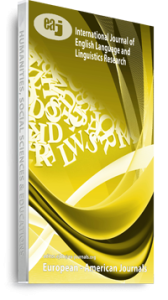This study determined Korean university students’ ranks of difficulty as well as rank and frequency of attitude on test-taking. Specifically, difficulties on 1) test instructions, 2) test contents, 3) test types, and 4) frequency of attitude towards testing were determined by employing the exploratory-quantitative-qualitative-interpretative type of research design. Through students’ survey questionnaire and focused group discussion as well as teachers’ interview, the findings are concluded that: 1) having been taught basic grammar points and vocabulary with the use of the learning materials, the students could still not communicate confidently and spontaneously in conversation practice that made them not able to display desirable competence in some written tests and activities; 2) students’ attitudes made an impact in learning the language as most of them did not see the importance of it for future life, because they did not exert effort to learn by studying religiously and participating in all activities; 3) the students were not able to develop their linguistic and communicative potentials because only an hour and fifty minutes were spent for each class in a week, covering the four macro skills with grammar and vocabulary enrichments; and, 4) for the teachers, tests were difficult to construct for validating language proficiencies because extremely poor and extremely good students were made to attend in one class altogether. It is implied that the students were not emotionally- and intellectually-prepared. To establish remedy, the teachers should provide 1) elaborated lecture-discussion to internalize knowledge, 2) appropriate teaching techniques to assimilate and accommodate language inputs, 3) sufficient examples of a test with various test types to demonstrate well their language skills, and 4) constant dialogue with them to establish rapport in a language testing environment and language classroom learning in general. The recommendations made by Lado (1961) and Jianrattanapong (2011) may also work in this study.
Keywords: Language Testing, Personality Factor, Short History of English Language Testing, Types Of Testing Based On Purpose and Interpretation

